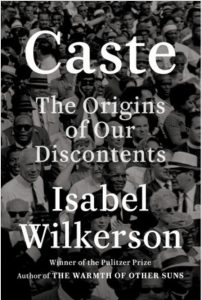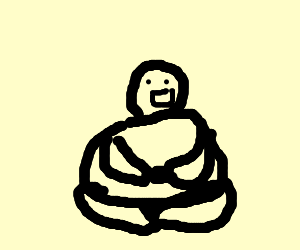Nietzsche
Racial Privilege and Chords of Memory
July 7, 2020Isabel Wilkerson’s follow-up to The Warmth of Other Suns will be released on August 20th.
She wrote an essay on July 1st for the New York Times called,
America’s Enduring Caste System
Our founding ideals promise liberty and equality for all. Our reality is an enduring racial hierarchy that has persisted for centuries.
[link]
“[Caste] should be at the top of every American’s reading list.”—Chicago Tribune
“As we go about our daily lives, caste is the wordless usher in a darkened theater, flashlight cast down in the aisles, guiding us to our assigned seats for a performance. The hierarchy of caste is not about feelings or morality. It is about power—which groups have it and which do not.”
‘In this brilliant book, Isabel Wilkerson gives us a masterful portrait of an unseen phenomenon in America as she explores, through an immersive, deeply researched narrative and stories about real people, how America today and throughout its history has been shaped by a hidden caste system, a rigid hierarchy of human rankings.
Beyond race, class, or other factors, there is a powerful caste system that influences people’s lives and behavior and the nation’s fate. Linking the caste systems of America, India, and Nazi Germany, Wilkerson explores eight pillars that underlie caste systems across civilizations, including divine will, bloodlines, stigma, and more. Using riveting stories about people—including Martin Luther King, Jr., baseball’s Satchel Paige, a single father and his toddler son, Wilkerson herself, and many others—she shows the ways that the insidious undertow of caste is experienced every day. She documents how the Nazis studied the racial systems in America to plan their out-cast of the Jews; she discusses why the cruel logic of caste requires that there be a bottom rung for those in the middle to measure themselves against; she writes about the surprising health costs of caste, in depression and life expectancy, and the effects of this hierarchy on our culture and politics. Finally, she points forward to ways America can move beyond the artificial and destructive separations of human divisions, toward hope in our common humanity.
Beautifully written, original, and revealing, Caste: The Origins of Our Discontents is an eye-opening story of people and history, and a reexamination of what lies under the surface of ordinary lives and of American life today.’ [Amazon]
From writer Eula Biss, posted on Dec. 2, 2015.
White Debt
Reckoning with what is owed–and what can never be repaid–for racial privilege.
[link]
The word for debt in German also means guilt.
Only something that continues to hurt stays in the memory,’’ Nietzsche observes in ‘On the Genealogy of Morality.’
The power to punish, Nietzsche notes, can enhance your sense of social status, increasing the pleasure of cruelty.
“I read several hundred pages of ‘‘Little House on the Prairie’’ to my 5-year-old son one day when he was home sick from school. Near the end of the book, when the Ingalls family is reckoning with the fact that they built their little house illegally on Indian Territory, and just after an alliance between tribes has been broken by a disagreement over whether or not to attack the settlers, Laura watches the Osage abandoning their annual buffalo hunt and leaving Kansas. Her family will leave, too. At this point, my son asked me to stop reading. ‘‘Is it too sad?’’ I asked. ‘‘No,’’ he said, ‘‘I just don’t need to know any more.’’ After a few moments of silence, he added, ‘‘I wish I was French.’’
The Indians in ‘‘Little House’’ are French-speaking, so I understood that my son was saying he wanted to be an Indian. ‘‘I wish all that didn’t happen,’’ he said. And then: ‘‘But I want to stay here, I love this place. I don’t want to leave.’’ He began to cry, and I realized that when I told him ‘‘Little House’’ was about the place where we live, meaning the Midwest, he thought I meant it was about the town where we live and the house we had just bought. Our house is not that little house, but we do live on the wrong side of what used to be an Indian boundary negotiated by a treaty that was undone after the 1830 Indian Removal Act. We live in Evanston, Ill., named after John Evans, who founded the university where I teach and defended the Sand Creek massacre as necessary to the settling of the West. What my son was expressing — that he wants the comfort of what he has but that he is uncomfortable with how he came to have it — is one conundrum of whiteness.
‘‘Tell me again about the liar who lied about a lie,’’ my son said recently. It took me a moment to register that he meant Rachel Dolezal. He had heard me talking about her with Noel Ignatiev, author of ‘‘How the Irish Became White.’’ I had said: ‘‘She might be a liar, but she’s a liar who lied about a lie. The original fraud was not hers.’’ Because I was talking to Noel, who sent me to James Baldwin’s essay ‘‘On Being White … and Other Lies’’ when I was in college, I didn’t have to clarify that the lie I was referring to was the idea that there is any such thing as a Caucasian race. Dolezal’s parents had insisted to reporters that she was ‘‘Caucasian’’ by birth, though she is not from the Caucasus region, which includes contemporary Armenia, Georgia and Azerbaijan. Outside that context, the word ‘‘Caucasian’’ is a flimsy and fairly meaningless product of the 18th-century pseudoscience that helped invent a white race.
Whiteness is not a kinship or a culture. White people are no more closely related to one another, genetically, than we are to black people. American definitions of race allow for a white woman to give birth to black children, which should serve as a reminder that white people are not a family. What binds us is that we share a system of social advantages that can be traced back to the advent of slavery in the colonies that became the United States. ‘‘There is, in fact, no white community,’’ as Baldwin writes. Whiteness is not who you are. Which is why it is entirely possible to despise whiteness without disliking yourself.
When he was 4, my son brought home a library book about the slaves who built the White House. I didn’t tell him that slaves once accounted for more wealth than all the industry in this country combined, or that slaves were, as Ta-Nehisi Coates writes, ‘‘the down payment’’ on this country’s independence, or that freed slaves became, after the Civil War, ‘‘this country’s second mortgage.’’ Nonetheless, my overview of slavery and Jim Crow left my son worried about what it meant to be white, what legacy he had inherited. ‘‘I don’t want to be on this team,’’ he said, with his head in his hands. ‘‘You might be stuck on this team,’’ I told him, ‘‘but you don’t have to play by its rules.’’
Even as I said this, I knew that he would be encouraged, at every juncture in his life, to believe wholeheartedly in the power of his own hard work and deservedness, to ignore inequity, to accept that his sense of security mattered more than other people’s freedom and to agree, against all evidence, that a system that afforded him better housing, better education, better work and better pay than other people was inherently fair.
My son’s first week in kindergarten was devoted entirely to learning rules. At his school, obedience is rewarded with fake money that can be used, at the end of the week, to buy worthless toys that break immediately. Welcome to capitalism, I thought when I learned of this system, which produced, that week, a yo-yo that remained stuck at the bottom of its string. The principal asked all the parents to submit a signed form acknowledging that they had discussed the Code of Conduct with their children, but I didn’t sign the form. Instead, my son and I discussed the civil rights movement, and I reminded him that not all rules are good rules and that unjust rules must be broken. This was, I now see, a somewhat unhinged response to the first week of kindergarten. I know that schools need rules, and I am a teacher who makes rules, but I still want my son to know the difference between compliance and complicity.”
(Seriously, not too.)
April 20, 2017Act always as if the future of the Universe depends on what you do, while laughing at yourself for thinking that whatever you do makes any difference.
-Buddha
I want to learn more and more to see as beautiful what is necessary…then I shall be one of those who makes things beautiful.
-Nietzsche


